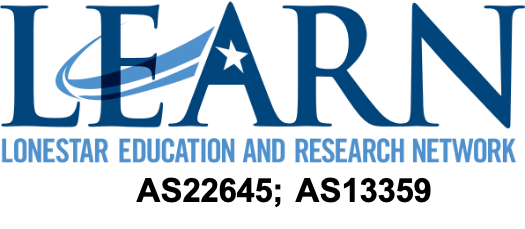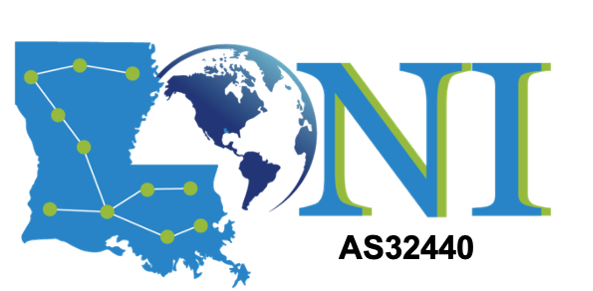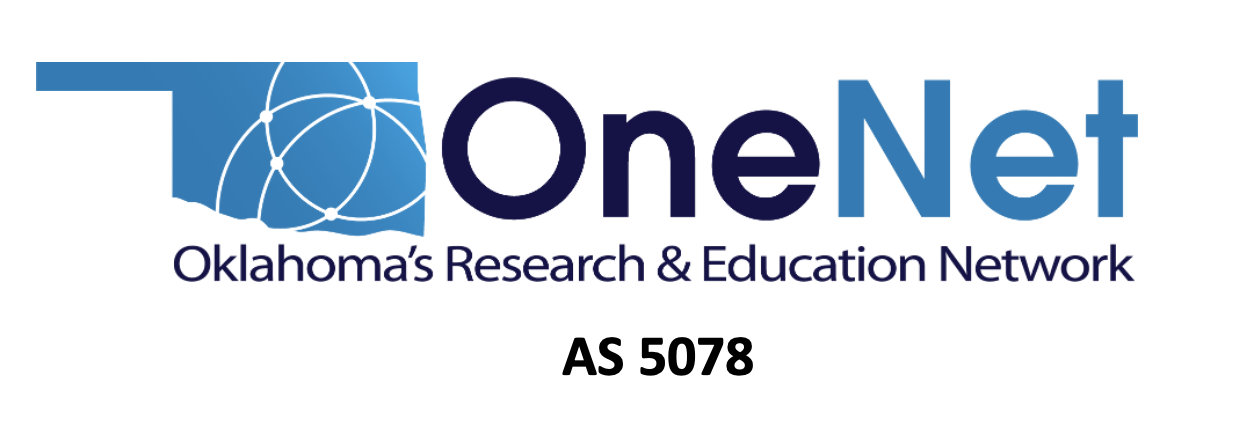MUS-IX Collaboration
Research and Education (R&E) Networks are an essential part of research and education activities. These networks provide the data communications connectivity needed to allow researchers and academics to collaborate together in their work, breaking down the barriers of distance while also supporting the critical business of education and research.
Most states in the U.S. have a version of an R&E Network. The R&E Networks for Texas, Arkansas, Louisiana, Oklahoma are working together to consolidate efforts, share resources, and connect to the content provider-rich Dallas area.
This regional collaboration, named Midsouth U.S. Internet Exchange (MUS-IX), includes Arkansas Research and Education Optical Network (ARE-ON), a consortium of Arkansas's public four-year, and two year institutions of higher education; Lonestar Education And Research Network (LEARN) a not-for-profit consortium of education and research organizations in Texas; the Louisiana Optical Network Infrastructure (LONI), a program of the Louisiana Board of Regents; and OneNet, a division of the Oklahoma State Regents for Higher Education (OneNet). The collaborators each operate advanced networks for, and on behalf of, themselves, their members, and other affiliates, including providing access to national research and education networks, commodity networks, and transit/peering connections.
The principal goal of MUS-IX is to provide an opportunity for the collaborators to reduce costs, enhance services, and coordinate participation in activities of mutual interest, such as national research and education networks, and other interconnections.
The Regional collaborators are excited to come together on behalf of their members and build on the strong relationships in the R&E community.
About the Collaborating R&E Networks (RENs)
ARE-ON
The Arkansas Research and Education Optical Network (ARE-ON) organization and its members comprise a community of thought leaders focused on collaborative learning and innovation through advanced networking, technology, and research in Arkansas. ARE-ON is a not-for-profit consortium of all public degree-granting institutions in Arkansas and other selected higher education organizations.
ARE-ON provides a high-speed fiber optic backbone network throughout the state with 1Gb, 10Gb, and 100Gb Ethernet connections to its members, affiliates, national research and education networks, regional optical networks, and commercial service providers. The network consists of approximately 2,200 miles of long-haul fiber optic cable and about 85 miles of metro fiber in twenty-four cities and four neighboring states. ARE-ON's extensive reach allows institutions to connect, collaborate, and innovate within the organization's core agendas: education, telemedicine, research, and emergency preparedness.
LEARN
Lonestar Education And Research Network (LEARN) is a consortium of 41 organizations throughout Texas that includes public and private institutions of higher education, community colleges, the National Weather Service, and K–12 public schools. The consortium, organized as a 501(c)(3) non-profit organization, connects its members and over 300 affiliated organizations through high performance optical and IP network services to support their research, education, healthcare and public service missions. LEARN is also a leading member of a national community of advance research networks, providing Texas connectivity to national and international research and education networks, enabling cutting-edge research that is increasingly dependent upon sharing large volumes of electronic data.
LEARN's optical fiber network spans over 3,200 miles across the state with scalable state-of-the art optical fiber technology. Our network runs east to west from Beaumont to El Paso and north to south from Lubbock to Brownsville. LEARN owns high-performance routers at 26 strategically located Points of Presence (POPs) across the great state of Texas.
LONI
The Louisiana Optical Network Infrastructure, or LONI, is a state-of-the-art, fiber optics network that runs throughout Louisiana, and connects Louisiana research universities to one another as well as Internet2. LONI connects Louisiana’s major research universities–Louisiana State University (LSU), Louisiana Tech University, LSU Health Sciences Center in New Orleans, LSU Health Sciences Center in Shreveport, Southern University, Tulane University, University of Louisiana at Lafayette and University of New Orleans–allowing greater collaboration on research that produces results faster and with greater accuracy. LONI provides Louisiana researchers with one of the most advanced optical networks in the country and the most powerful distributed supercomputer resources available to any academic community with over 85 teraflops of computational capacity.
LONI’s high-performance computing and distributed storage network infrastructure was initially funded by a $50M state investment from the State of Louisiana. With more than 1600 km of backbone fiber, LONI is geographically distributed across the entirety of Louisiana and portions of Mississippi.
OneNet
OneNet is the comprehensive digital communications initiative of Oklahoma State Regents for Higher Education and Oklahoma’s only statewide internet service provider. OneNet leverages local, national, public and private partnerships to provide world-class broadband connectivity to institutions that sustain communities and enrich lives. OneNet’s mission is to advance technology across Oklahoma. OneNet’s high performance optical network meets the mission-critical needs of Oklahoma’s education, research, health care and public service communities. OneNet also partners with other research and education networks across the country to connect Oklahoma to research programs throughout the nation and around the globe. Serving the diverse set of research and education needs of Oklahoma, OneNet has developed and operated a statewide fiber backbone with an 100Gbps infrastructure serving Oklahoma’s largest research institutions. OneNet operates one of the two Great Plains Network 100Gbps on-ramps to Internet2, as well as directly connects to other statewide research networks through Internet2.




